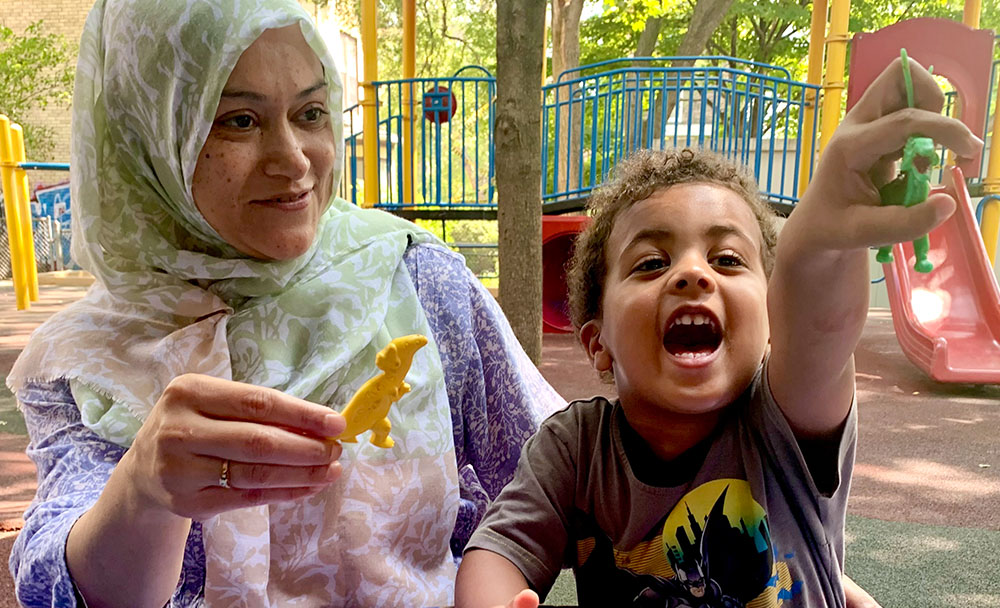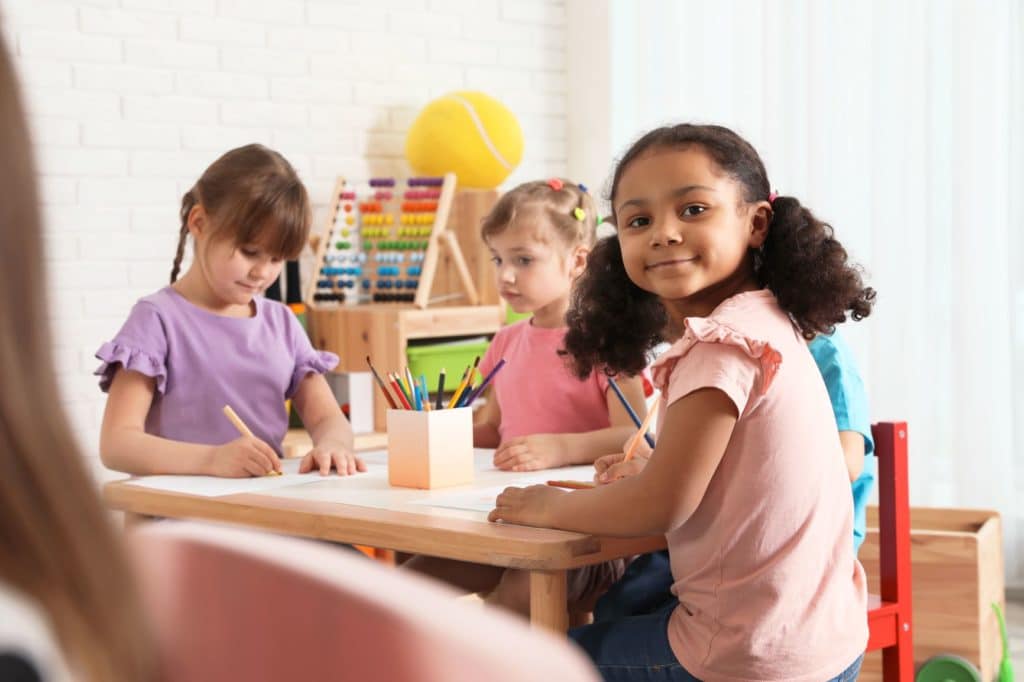Recognizing the Importance of Daycare for Your Young child's Social Advancement and Understanding Knowledge Via Engaging Activities
The relevance of daycare in forming a kid's social development and discovering can not be overemphasized, as it provides an organized environment loaded with appealing tasks that are essential for very early development. As we explore the multifaceted advantages of daycare, one should think about how these fundamental experiences affect a kid's future social communications and general development.

Advantages of Social Interaction
Social interaction plays a critical role in the developmental trajectory of kids, functioning as a structure for essential social abilities. Involving with peers enables young children to exercise interaction, discover to express their emotions, and create compassion. With shared play and participation, they begin to recognize social standards, such as taking turns and sharing, which are essential elements of effective interpersonal relationships.
Furthermore, social interactions contribute to cognitive growth. As toddlers connect with their peers, they enhance their language abilities, increase their vocabulary, and improve their ability to verbalize ideas and sensations. This exchange of ideas cultivates crucial thinking, as kids learn to negotiate, solve issues, and navigate disputes.
Additionally, social communication advertises psychological guideline. Exposure to different social scenarios helps young children identify and handle their emotions, ultimately bring about higher durability and adaptability. The capacity to form attachments and friendships likewise boosts their sense of belonging and self-worth, which are vital for total wellness.
Significance of Engaging Activities
Involving tasks are important for fostering a stimulating environment that enhances young children' social growth. These tasks not just captivate children's interest yet also promote active engagement, enabling them to discover their surroundings artistically. Through play-based discovering, kids develop crucial skills such as analytical, participation, and compassion, all of which are critical for constructing healthy and balanced connections with peers.
Joining appealing tasks, such as team video games, art projects, and interactive storytelling, encourages young children to express their ideas and feelings. This expression is important for emotional intelligence and helps them understand the point of views of others. When toddlers engage in these activities together, they find out to discuss roles, share resources, and team up, which are essential elements of social interaction.
On top of that, a well-structured atmosphere that includes varied and revitalizing tasks aids in maintaining kids encouraged and focused. This inspiration promotes a love for learning and exploration, laying the foundation for future educational experiences. Inevitably, engaging activities in childcare setups are critical in shaping social abilities, preparing kids for effective interactions past the classroom, and nurturing their total advancement during these developmental years.
Developing Communication Abilities
Efficient interaction skills are critical for kids as they navigate their very early social interactions. In a childcare setup, children are revealed to diverse social situations that urge non-verbal and spoken interaction. Talking with caregivers and peers cultivates language growth, making it possible for kids to share their needs, feelings, and thoughts better.

In addition, childcare settings provide opportunities for kids to simulate and observe interaction styles of their adults and peers. This observational learning is crucial as kids notice social hints, tone, and body movement, which are important parts of effective communication.
Cultivating Self-reliance and Confidence
As kids refine their communication abilities, they concurrently begin to explore our website their self-reliance and build self-confidence in social settings (toddler daycare near me). Daycare gives a structured setting where kids can participate in different tasks that encourage freedom. From choosing their own tasks to taking part in team tasks, these experiences equip toddlers to make choices and reveal themselves
In a daycare setup, youngsters are typically offered with chances to fix problems separately, whether it's figuring out exactly how to share playthings or fixing disputes with peers. This cultivates crucial reasoning and advertises self-direction. In addition, caregivers support this growth by supplying favorable reinforcement and assistance, assisting youngsters to navigate social communications with self-confidence.

Team tasks, such as cooperative video games or joint art jobs, help with teamwork and educate young children the importance of collaborating. Through these interactions, kids learn to interact their ideas and sensations, further improving their self-esteem and social abilities.
Eventually, fostering self-reliance and self-confidence in day care not just prepares young children for future social settings but likewise lays the foundation for a resilient frame of mind, look at this now outfitting them with necessary life skills as they remain to expand and learn.
Building Lifelong Discovering Structures
A strong structure for lifelong discovering is critical for young children, as their very early experiences shape their attitudes towards education and learning and curiosity. Day care environments play a crucial function in this developing phase by supplying organized opportunities for exploration and involvement. Engaging activities, such as team play, crafts and arts, and interactive storytelling, stimulate cognitive development while motivating social communication.
Through these experiences, toddlers learn vital skills such as analytical, interaction, and cooperation. They are introduced to the idea of finding out as a pleasurable, collaborative process as opposed to a duty, which cultivates a positive perspective towards education and learning. Additionally, direct exposure to varied viewpoints and peer communications in daycare settings enhances psychological intelligence, advertising compassion and durability.
Caregivers and instructors additionally add dramatically to developing this structure by modeling interest and interest for knowing. By encouraging concerns and promoting conversations, they produce an atmosphere where kids really feel safe to express themselves and discover originalities. Eventually, the mix of helpful connections and engaging tasks in childcare setups lays the groundwork for a long-lasting love of discovering, equipping young children with the abilities and frame of mind necessary for future scholastic and personal success.
Conclusion

The significance of day care in shaping a toddler's social advancement and knowing can not be overemphasized, as it supplies an organized atmosphere loaded with appealing tasks that are critical for very early development.Social communication plays an important duty in the developmental trajectory of young children, offering as a foundation for necessary social abilities. When toddlers involve in these tasks together, they discover to discuss functions, share sources, and collaborate, which are basic facets of social interaction.
Ultimately, involving tasks in childcare setups are critical in shaping social skills, preparing kids for successful interactions past the classroom, and nurturing their general advancement during these developmental years.
Ultimately, his comment is here the advantages of interesting activities in daycare settings play a significant duty in preparing young children for future social interactions and obstacles. baby daycare near me.